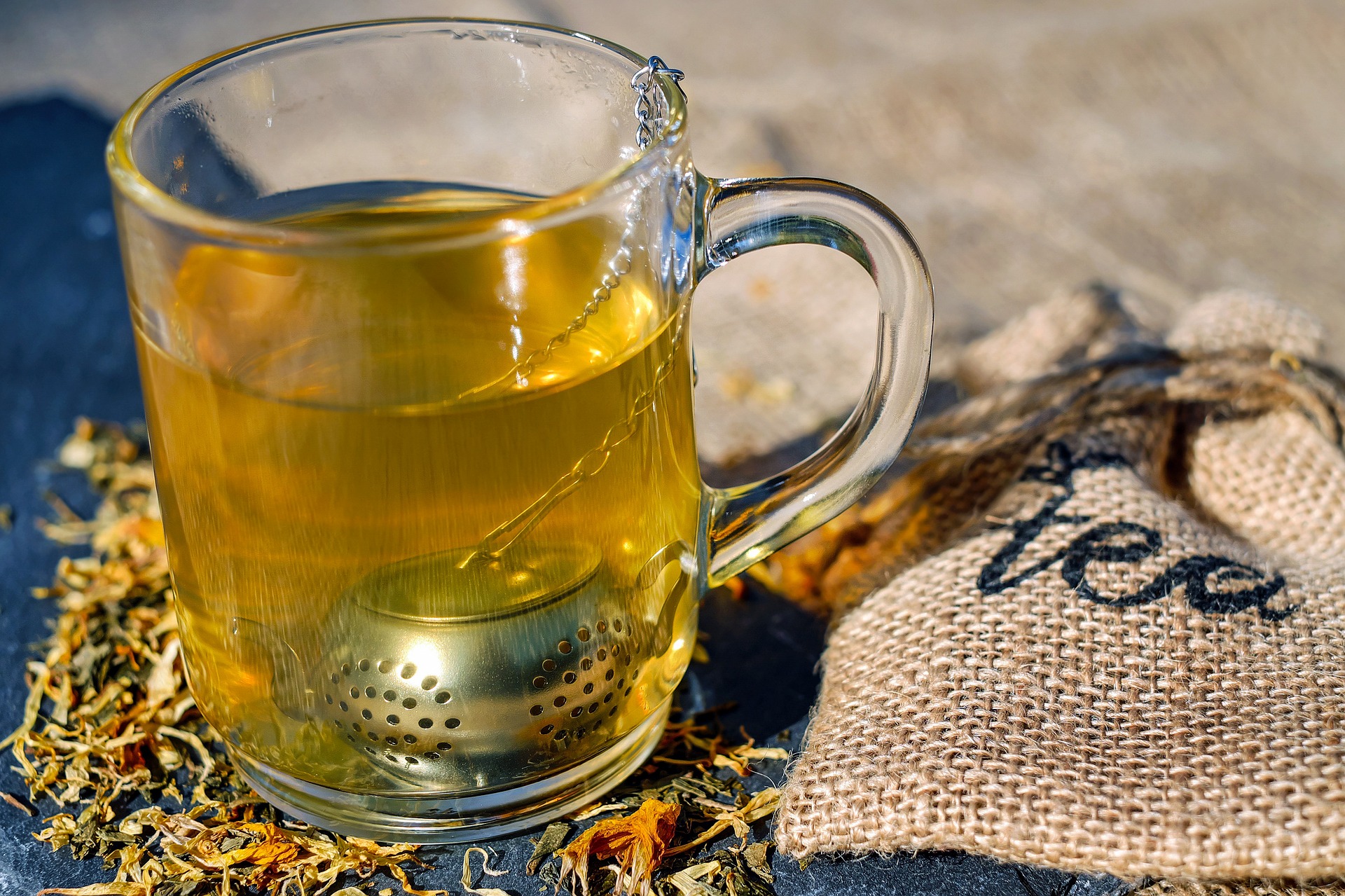 Tea is a complex mixture of chemicals and these have been isolated and characterised. Evidence suggests that tea has a calming effect, and this may relate to the unique chemical composition of the drink. The calming effects of tea may suggest that tea could be used as an anti-anxiety drink. Tea is rich in antioxidants including a group of flavonoids called catechins. The catechins in tea include epigallocatechin gallate, epicatechin gallate, gallocatechin gallate, epicatechin, epigallocatechin gallocatechin and catechin. These compounds have biological activity as antioxidants and have been shown to exert anxiolytic effects in animals. In particular, the catechins in tea may interact with the GABA receptor and modify the response of the brain to excitatory input by causing a calming effect. Tea contains other flavonoids including a group of flavonols that comprise quercetin and kaempferol. Both quercetin and kaempferol may also bind to the benzodiazepine receptor and cause modifications to brain chemistry.
Tea is a complex mixture of chemicals and these have been isolated and characterised. Evidence suggests that tea has a calming effect, and this may relate to the unique chemical composition of the drink. The calming effects of tea may suggest that tea could be used as an anti-anxiety drink. Tea is rich in antioxidants including a group of flavonoids called catechins. The catechins in tea include epigallocatechin gallate, epicatechin gallate, gallocatechin gallate, epicatechin, epigallocatechin gallocatechin and catechin. These compounds have biological activity as antioxidants and have been shown to exert anxiolytic effects in animals. In particular, the catechins in tea may interact with the GABA receptor and modify the response of the brain to excitatory input by causing a calming effect. Tea contains other flavonoids including a group of flavonols that comprise quercetin and kaempferol. Both quercetin and kaempferol may also bind to the benzodiazepine receptor and cause modifications to brain chemistry.

Both green and black tea share similar chemical properties and so both variations of the drink should have health giving effects. Green tea is often thought of as a more healthy drink, but this is not necessarily true and black tea certainly shares most of the health effects of green tea.
Antioxidants are important anxiolytic for other reasons than binding to the benzodiazepine receptor. Evidence suggests that anxiety is associated by free radicals which cause oxidative stress and this may relate to the inflammation that accompanies stress. Antioxidants in the diet can help to reduce this oxidative stress and limit the damage from stress on the brain. Other antioxidants in tea include a group of theaflavins which comprise theaflavin-3-gallate, theaflavin-3’-gallate and theaflavin-3,3’-digallate. other antioxidants include thearubigin, proanthocyanidins and theogallin. Tea is therefore extremely rich in antioxidants. Other chemicals in tea which may have anxiolytic effects include L-theanine, an amino acid that has been shown to cause relaxation in the brain of animals, and a number of volatile compounds some of which have also shown anxiolytic effects in animals. These volatile compounds include linalool, delta-cardinene, geraniol, nerolidol, alpha-terpineol, cis-jasmone, indole, beta-ionone, 1-octanal, indole-3-carbinol and beta-caryophyllene.
Eat Well, Stay Healthy, Protect Yourself
RdB
